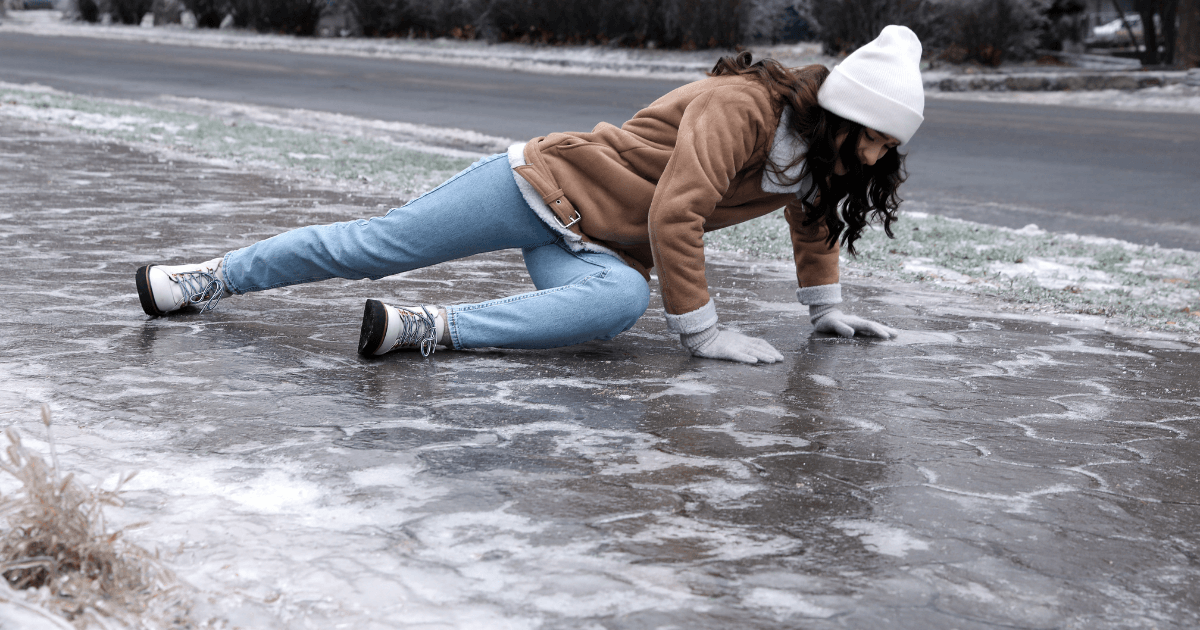By 12 o’clock noon one cold and miserable afternoon in a bustling municipality in Canada in January 2019, the emergency medical services had been called out for slip and fall accidents around Toronto no fewer than 38 times within 48 hours, a 300 percent increase over the daily average. While most of us escape a slip on the ice with nothing other than our dignity in a sling, others may suffer a severe blow to the head, internal bleeding, or a fractured limb. Personal injury compensation is available to help you through this difficult time.
Who is Liable for Personal Injury Compensation
The Ontario Occupiers Liability Act makes it clear that property owners are required to take ‘reasonable measures’ to safeguard people who are lawfully on their property? The act includes sidewalks and applies to:
- Schools
- Hospitals
- Shopping malls
- Office buildings
- Retail outlets
- Residential homes and properties
While municipalities such as Ontario or Toronto are equally responsible for clearing ice and snow from sidewalks, the standard of proof of liability for personal injury compensation is higher than it is for personal injury compensation claims from private property owners. Here, the municipality must be demonstrated to have been grossly negligent. For this reason, it is essential that you ask someone around you to take a photo of the accident scene once your immediate medical needs have been attended to and help is on its way.
Personal Injury Claims — Types of Compensation
It’s human nature to trivialize a slip on the ice. However, when the head hits the hard, frozen pavement from a height of anywhere from five or six feet or better, the impact can be life-changing, even lethal. A fracture to the head, or even a serious concussion, can leave an individual with a permanent deficit.
Not only will the injured party be faced with the immediate medical costs, which often include a hospital stay of days, weeks, or even months, but they may require extended physical or occupational therapy, neurorehabilitation, home nursing care, expensive equipment, and so on. If the individual had been earning an income before they were injured, this, too, will be a financial loss. The sum awarded for personal injury compensation is directly proportional to the severity of the injury. Brain injury lawyers can help you sort out this legal quagmire.
If the city of Toronto did indeed display gross negligence in maintaining the icy sidewalk that caused the slip and fall injury of yourself or a loved one, you or they may pursue a personal injury compensation claim for:
- Immediate, ongoing, and future costs of medical treatment and out of pocket expenses.
- Pain and suffering up to the legal maximum of $340,000. This is etched in stone, even if you go to court.
- Loss of wages and future income is called, “loss of earning capacity” and applies whether you are unable to return to work or unable to work at the same income capacity.
- Personal injury compensation for family members. If a family member loses money as a result of having to take time off to provide care for you, they, too, are entitled to certain types of compensation including for loss of “guidance, care, and companionship.”
Why You Should Seek the Advice of a Personal Injury Lawyer
If you fall on their property, the owner or their representative will do their level best to avoid having to payout. They may meddle with the scene or even pester you for a statement absolving them of responsibility.
Whether or not you later decide to pursue a claim for personal injury compensation, you would do well to consult with a personal injury lawyer to learn what to say, what to do, and even what not to do. Additionally, there are time limitations for compensation claims. According to the Municipal Act, claims based on snow and ice must be submitted within 10 days of the accident. Failure to meet this deadline could cost you your right to sue for compensation.















